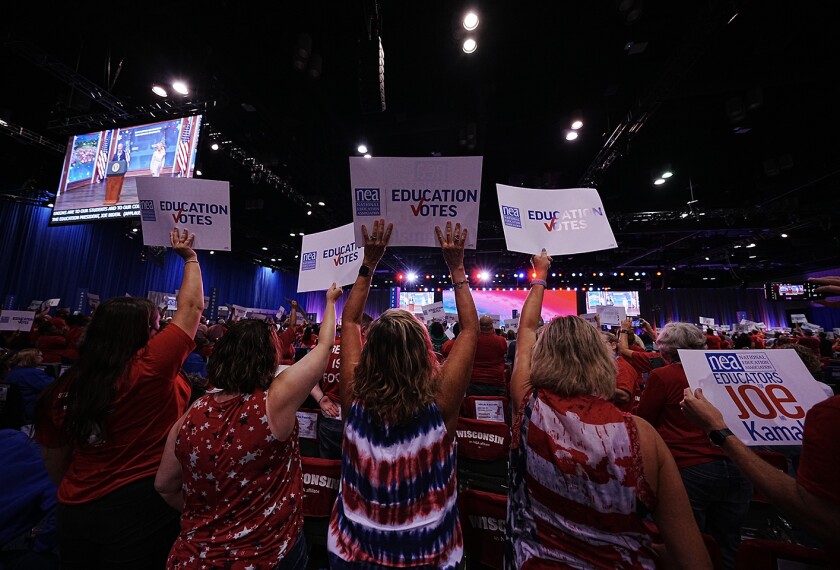With 350,000 students suddenly without supervision as a result of the Chicago teachers’ strike, community groups, churches, parks, and recreational facilities here swung their doors open last week to keep young people occupied while their parents worked. One of the more controversial providers was the school district itself, which kept up to 147 city schools open as a contingency plan for parents without other options.
Staffed by principals, administrators, and parent and community volunteers, those “Children First” schools sought to keep youngsters busy—and out of trouble—with nonacademic projects and activities.
One such school was Crown Community Academy, located in the Lawndale neighborhood on Chicago’s West Side. On the afternoon of the second day of the strike, the children at Crown, a school serving pre-K through 8th grade, were separated into three groups by age. Primary-grade students were in the gym, dribbling balls, hula-hooping, and playing “double dutch” with jump ropes. Elementary students, roughly grades 3-5, were hard at work with paints and popsicle sticks in an arts-and-crafts center.The older students, meanwhile, were quietly concentrating on games: Sorry!, the card game Uno, a word game called Apples to Apples.
“I’d much rather it be a school day with teaching and learning,” said Lee M. Jackson, the school’s principal. “But at least we know they are safe for four hours here.”

Lawndale is one of Chicago’s poorer neighborhoods. Although there are signs of revitalization—a community garden grows not far from the school—some of the homes are boarded up and lawns need weeding. Many families here are renters or move often.
Under normal circumstances, more than 99 percent of enrolled students at Crown qualify for federally subsidized meals.
‘Scab Schools’?
One hundred forty-four Children First schools were initially selected with the input of the district’s network chiefs—essentially, regional superintendents—and were picked with an eye toward geographic distribution. School buses weren’t running, but the Chicago Transit Authority offered students free rides during the strike. Additional Children First schools were added as the strike progressed. (The district has a total of 681 schools.)
The Chicago Teachers Union protested the program, describing it as a potential “train wreck.” On the union’s website, a document listing the Children First sites carried the filename “scab schools.” The CTU encouraged picketing teachers to make a strong presence at the schools, an action that earned a rebuke from district schools chief Jean-Claude Brizard.
But those tensions weren’t on display at Crown Community Academy.
“I have the best teachers in the city of Chicago,” Mr. Jackson said. As he walked a reporter out of the building, he greeted the picketing teachers warmly.
“You doing OK out here?” he asked.
One of them jingled some bells she had, in a friendly response.
For their part, the teachers had nice things to say about Mr. Jackson’s leadership. But they voiced concerns that the building didn’t have adults on hand who could at least teach the students second languages, music, or drama.
Steve Taylor, a middle school science teacher at Crown, said he had heard that schools in the city’s tonier North Side neighborhoods have such programs.
“It’s who has the right ears, the right pull in the city’s power structure,” he said. “It’s old-city politics, nothing new.”





